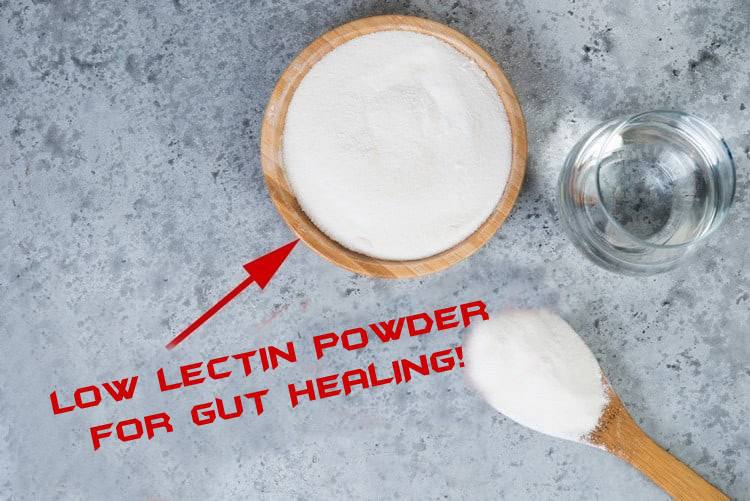Low Lectin Seeds – A Fast & Powerful Guide
Have you heard about lectins and their potential impact on your health?
We will explore what lectins are, why some people are concerned about them in seeds, and the benefits of consuming low lectin seeds.
We will also discuss the risks of consuming low lectin seeds and provide examples of how to incorporate low lectin seeds into your diet.
Whether you are looking to reduce inflammation, improve digestion, or manage your weight, low lectin seeds may be a great addition to your meals.
Discover how these nutrient-dense seeds can benefit your overall well-being.
What Are Lectins?
Lectins are a type of protein found in many plant-based foods that can have both positive and negative impacts on your health.
Their main potential point of focus is that they can potentially trigger adverse reactions in some individuals, even though they also have been said to have numerous potential health benefits.
Research suggests that lectins may play a role in promoting inflammation. For those with compromised digestive systems, lectins may exacerbate symptoms.
It is important for people with dietary restrictions to be mindful of their lectin intake and consider strategies to mitigate any negative effects while still reaping the benefits of eating a diverse variety of nutrient-dense foods.
Why Are Some People Concerned About Lectins in Seeds?
Some individuals are wary of lectins in seeds due to concerns about their potential inflammatory effects and impact on gut health. People following specific dietary restrictions, such as those seeking weight loss or managing autoimmune diseases, may avoid high-lectin seeds to support their health goals.
Lectins, naturally occurring proteins found in many plant-based foods, have been linked to increased gut permeability and inflammation in some individuals. This has raised alarm among health-conscious individuals who are keen on optimizing their gut health.
For those focused on weight management, as lectins can impede nutrient absorption, avoiding high-lectin seeds may aid in better weight control. Considering dietary restrictions, especially in the case of autoimmune conditions, steering clear of high-lectin seeds can be crucial in managing symptoms and supporting overall well-being.
What Are Low Lectin Seeds?
Low lectin seeds are seed varieties with minimal lectin content, making them suitable for individuals seeking gluten-free, nutrient-dense options in their paleo or other similar diets. These seeds provide a rich source of essential nutrients without the potential lectin-related concerns.
Common low lectin seeds include chia seeds, flaxseeds, hemp seeds, and pumpkin seeds, all of which offer distinct flavors and textures to enhance a variety of recipes.
Other seeds which contain higher amounts of lectins can be reduced by opting for soaked and sprouted seeds, a process which decreases the amount of lectins and other anti-nutrients in seeds.
This process can not only increase the nutrient availability of the seeds, but also reduce the likelihood of digestion problems or lower energy.
What Are the Benefits of Consuming Low Lectin Seeds?
Incorporating low lectin seeds into a diet can result in improved digestion, given their rich content of essential nutrients that promote overall health. These seeds are beneficial for weight management and serve as a plant-based source of protein.
Low lectin seeds, such as chia, flax, and hemp seeds, are packed with vital nutrients such as omega-3 fatty acids, fiber, and antioxidants.
They also contribute significantly to supporting a healthy digestive system. The high fiber content in these seeds can enhance regularity and promote gut health, reducing bloating and discomfort. Additionally, their satiating properties can help with appetite control, potentially aiding in weight management efforts.
Hemp seeds in particular contain a large amount of protein, which is one of the reasons they are a popular choice for protein powders and some believe they are one of the best lectin-free protein powders.
Pumpkin seeds are packed with magnesium, zinc, and antioxidants, ideal for snacking or topping salads.
What Are the Risks of Consuming Low Lectin Seeds?
While eating low lectin seeds is generally safe, there are some considerations to keep in mind depending on the unique individual.
First, if a person has specific food allergies, than those should be considered regardless of whether the seeds are low in lectins or not. Also, similar things should be considered if they have a food sensitivity to that specific food, which can lead to negative reactions.
Low lectin seeds are also quite high in fat which may pose difficulty for people who have difficulty digesting fat, or contribute to undesired weight gain if a lot of them are eaten.
How Can You Incorporate Low Lectin Seeds into Your Diet?
Incorporating low lectin seeds into daily meals can help increase nutrient intake and support overall health. These seeds can be easily added to a variety of dishes, providing a convenient and flavorful way to assist with weight management goals.
Chia seeds make great additions to smoothies and other drinks and offer a unique benefit by creating an almost gelatinous texture that is soothing to the digestive system.
You can also experiment with different cooking techniques like roasting, boiling, or steaming to bring out the flavors and textures of these seeds.
Coating baked goods with low lectin seeds such as flax or sesame seeds not only enhances their visual appeal but also adds a nutritious element to your treats. These seed coatings offer a crunchy texture and bring additional health benefits to your favorite baked goods.
When meal planning, consider incorporating a variety of low lectin seeds to boost your intake of essential nutrients and create a well-rounded menu.
What Are Some Examples of Low Lectin Seeds?
Some examples of low lectin seeds that showed no lectin content in research are: ¹ ² ³
- Pumpkin seeds
- Hemp seeds
- Chia seeds
- Flax seeds
- Poppy seeds
- Sesame seeds
These seed varieties offer a diverse range of options for incorporating nutrient-rich and lectin-free choices into your diet.
Resources:
1. http://medicinalplants-kr.org/
2. https://sciendo.com/article/10.1515/sjecr-2016-0031
3. https://www.ncbi.nlm.nih.gov/pmc/articles/PMC8618113/

